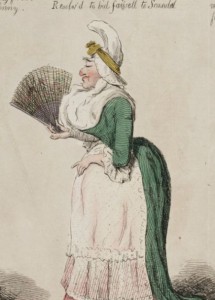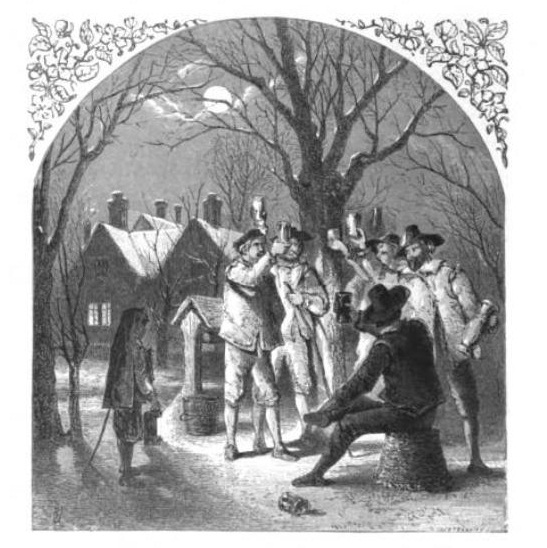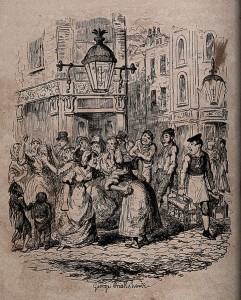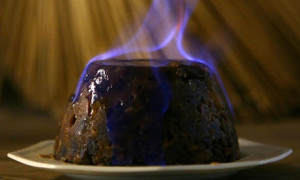 I was googling around to see if people during the Regency might have made New Year’s resolutions and found confirmation in a delightful post from The Snug Blog. The author found a 1792 etching “A Long String of Resolutions for a New Year – Design’d by G.M. Woodward” including satirical sketches of people making various resolutions including the one shown here.
I was googling around to see if people during the Regency might have made New Year’s resolutions and found confirmation in a delightful post from The Snug Blog. The author found a 1792 etching “A Long String of Resolutions for a New Year – Design’d by G.M. Woodward” including satirical sketches of people making various resolutions including the one shown here.
I imagine they probably had a similar success rate to what people have now. Googling further, I found statistics saying that about 8-12% of those making New Year’s resolutions end up succeeding. Maybe it’s not so bad–at least those 8-12% made it, and for the rest, there’s always next year.
The problem is that starting a new calendar doesn’t mean I’ve left the baggage of the previous year behind. All the things that hindered me in the past may still be there. Any resolution that doesn’t take those things into account isn’t going to go far.
Also, if I feel the need for a change, I don’t want to wait until the New Year to start it. And if I backslide, I’m also not going to wait until the next year to start over. It’s only through setbacks and recoveries, by stringing together small successes day by day, that my larger goals have ever been met.
So I don’t really believe in New Year’s resolutions as such, although I do think it’s good to take time to reflect on how life is going and whether I’m living as authentic a life as I can.
The small steps I’ve been taking recently toward creative recovery include going to a coffee shop a few times a week to work on a new novella. I’m nearly done with the first draft and more importantly, I’m enjoying it.
Baby steps.
How do you feel about New Year’s resolutions? Have you made any? What helps you succeed?
Elena








